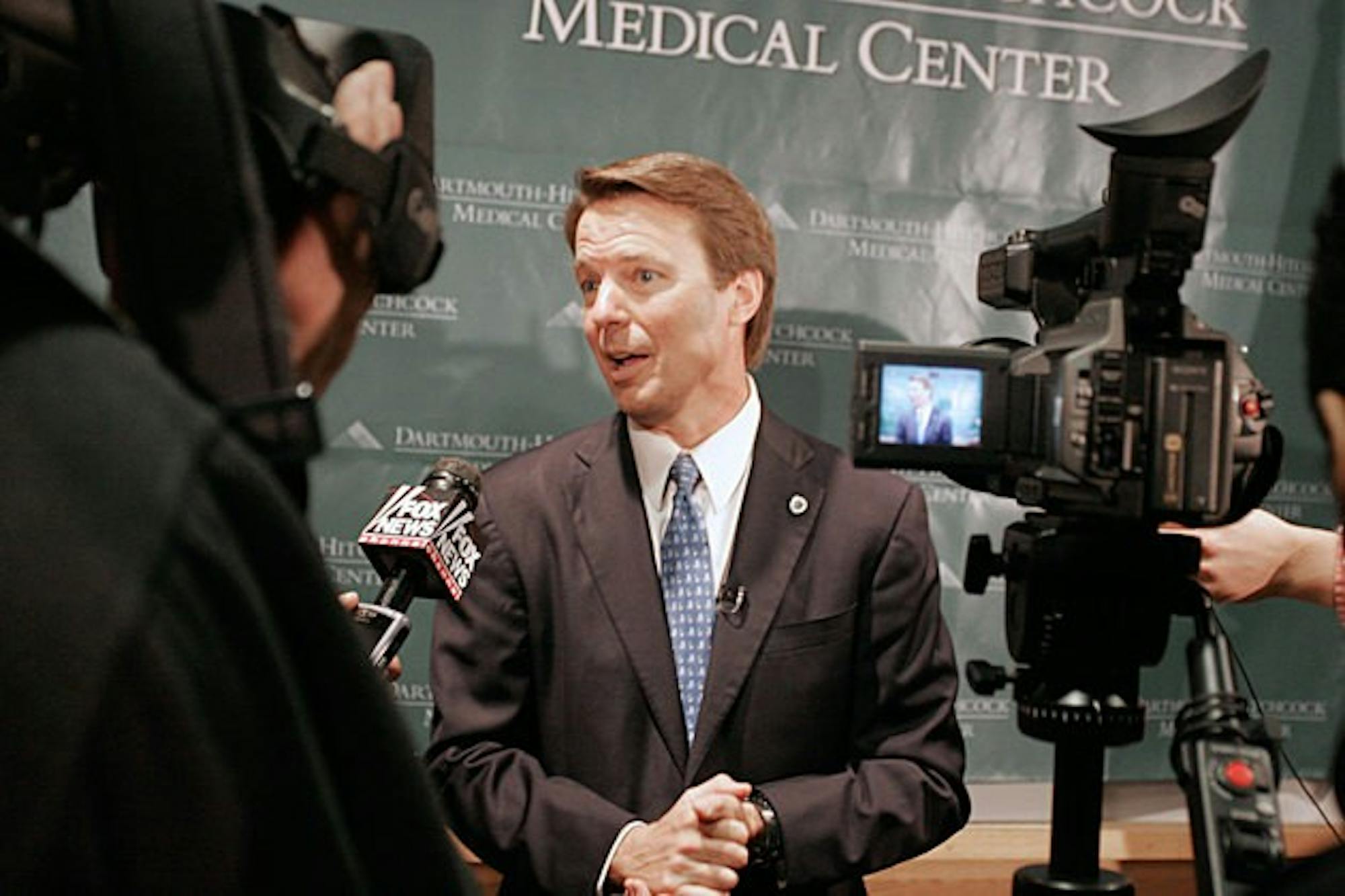Medical students, doctors and health care workers gathered at Dartmouth-Hitchcock Medical Center on Tuesday to hear Democratic presidential candidate John Edwards speak on current and future policy issues facing the medical community.
The event, which featured a short opening speech by Edwards and a detailed question-and-answer session, focused mainly on Edwards' plan to address American's lack of access to affordable, effective healthcare.
"We have a dysfunctional healthcare system in America," Edwards said, citing the large number of uninsured Americans and the rising costs of treatment as indicators of the ineffectiveness of the current structure.
Chief among Edwards's proposals was the institution of a more competitive system for health insurance, designed to combat rising insurance premiums and the shrinking number of conditions covered.
"What I have proposed is basically the creation of healthcare markets," Edwards said. He described a system in which private companies face more stringent regulations on coverage, as well as competition from a comprehensive, government-sponsored coverage option. Individuals could then choose the option they prefer.
The market will ultimately come to favor either the single-payer or the private insurance option as people decide between the two, Edwards said. He argued that it is necessary, given the diversity of public opinion, to offer people a choice.
"You can't just sit in a room and decide what the perfect healthcare policy is," he said.
Audience members also raised their own concerns, including the lack of coverage for long-term care, falling funding for medical research and the importance of ensuring the availability of treatments for AIDS.
Edwards took on each point in turn, advocating more funding and improved standards for long term and independent care. He also noted the necessity of maintaining America's position as a leader in research, criticizing President George W. Bush's recent veto of a bill to expand funding for the National Institutes of Health.
AIDS poses a particular challenge to policymakers, Edwards said, because "most Americans think HIV/AIDS [is only a problem in] Africa, maybe Russia." While America has a responsibility to help eliminate AIDS worldwide, he said, politicians have to make sure Medicaid covers necessary treatments for patients here in the U.S.
One question raised in the course of discussion was whether adequate funding would be available for the large expansion Edwards proposed, given present funding constraints on Social Security and Medicare.
Edwards argued that while rolling back the Bush administration's tax cuts will not cover the program's total costs, a large amount of capital gains currently go unreported. By assessing capital gains taxes through brokerages rather than individuals, tax revenue is more accurately reported, with the increased funds fulfilling program costs.
"I think we all have a responsibility to give something back," Edwards said, "and I think most Americans believe that."
Most of the audience was enthusiastic about Edwards' speech and the subsequent discussion. Ellen Pryor, a nurse at DHMC chosen to question Edwards, said that in her interest of long-term care, some of his proposal might not always be possible. Despite this, she still thought Edwards presented well.
The discussion was part of DHMC's Health Policy Grand Rounds series, intended to educate members of the local medical community about current and future health policy. Past participants have included Republican presidential candidates Mitt Romney and Mike Huckabee.




